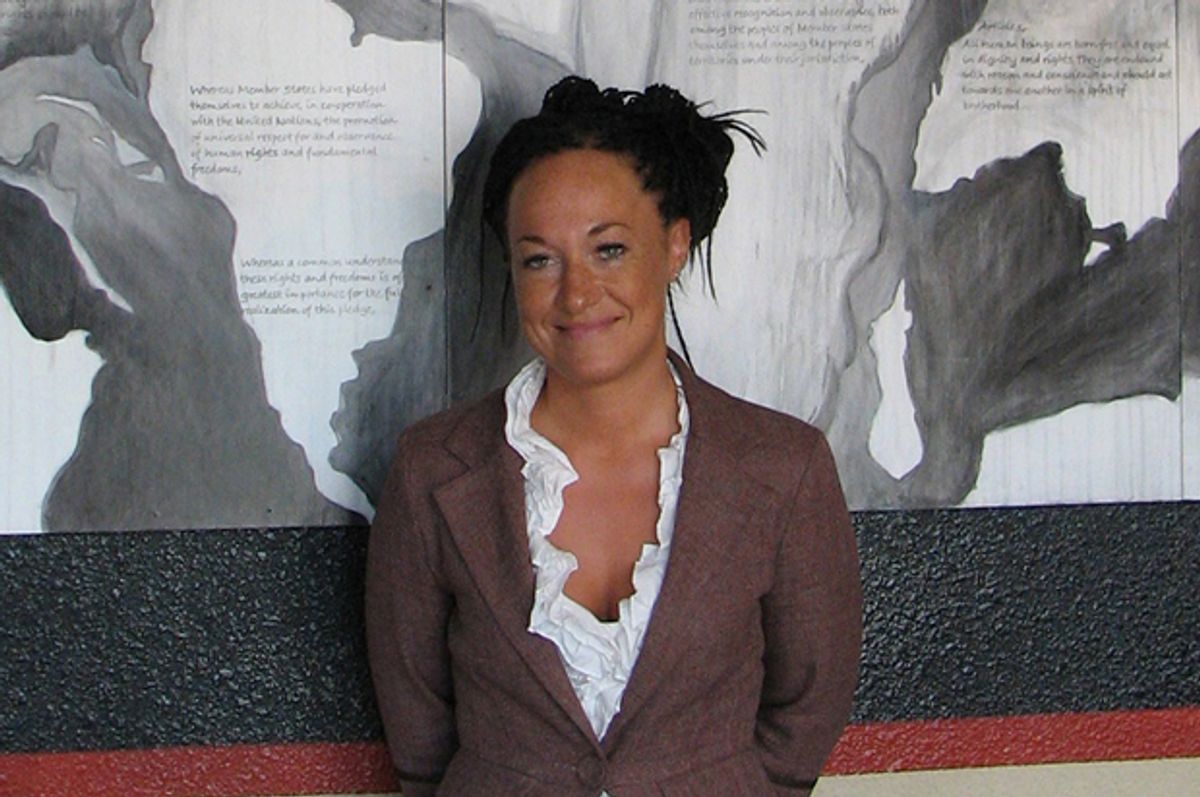Let's start with Rob Lowe!
[embedtweet id="609587813114220544"]
Over at Buzzfeed, a new report that while teaching a class on race and culture at Eastern Washington University, Dolezal told her she didn't look Hispanic enough to join a conversation about being Hispanic.
The student said that the incident occurred within the first three weeks of an introductory course on race and culture. Dolezal introduced an activity she called “Fishbowl,” in which one student sat in front of the class as others were invited to ask them questions about their racial and cultural experiences.
In the first round of Fishbowl, the student said Dolezal sought out a volunteer of Hispanic background to be questioned.
The student, who told BuzzFeed News that she identifies as Hispanic, grew up in a Spanish-speaking country, speaks the language fluently, and, while she has light skin, believes she has a “pretty solid experience of what it’s like to be Spanish.” She raised her hand to participate.
“I think we should ask another student,” the student recalled Dolezal saying in class.
The student asked why she could not participate.
“Rachel said I didn’t look Hispanic,” she said, and that her instructor “doubted that I could share experiences of racial or ethnic discrimination because I didn’t have the appearance of looking Hispanic.”
In the Guardian, a fascinating piece by Meredith Talusan with the title "There is no comparison between transgender people and Rachel Dolezal"
She writes that:
The fundamental difference between Dolezal’s actions and trans people’s is that her decision to identify as black was an active choice, whereas transgender people’s decision to transition is almost always involuntary. Transitioning is the product of a fundamental aspect of our humanity – gender – being foisted upon us over and over again from the time of our birth in a manner inconsistent with our own experience of our genders. Doctors don’t announce our race or color when we are born; they announce our gender. People who are alienated from their presumed gender and define themselves according to another gender have existed since earliest recorded history; race is a medieval European invention. Thus, Dolezal identified as black, but I am a woman, and other trans people are the gender they feel themselves to be.
Dolezal might feel an enormous affinity to blackness – so much that she decided to identify as black – but her decision to occupy that identity is one that was forged through her exposure to black culture, not a fundamental attribute of her existence. Someone’s racial identification isn’t automatically less important than their gender in an American context, given our tumultuous history and the ways in which society’s perceptions of both either privilege or restrict one’s economic and social opportunities and mobility. But someone who crosses racial boundaries from a privileged one to a marginalized one is much more likely to do so for political purposes (as Dolezal seems to have done) or to profit from minority culture (as we’ve seen time and time again with white artists, like Iggy Azalea, appropriating black culture). Transitioning doesn’t often benefit trans people politically or financially; it benefits us because it is a way to begin to make our external presentation match our internal perceptions of ourselves, even as it is likely to disprivilege us socially and economically.
However, NYU sociology professor Ann Morning is not as convinced. She tells CBS that:
“We’re getting more and more used to the idea that people’s racial affiliation and identity and sense of belonging can change, or can vary, with different circumstances.”

Shares